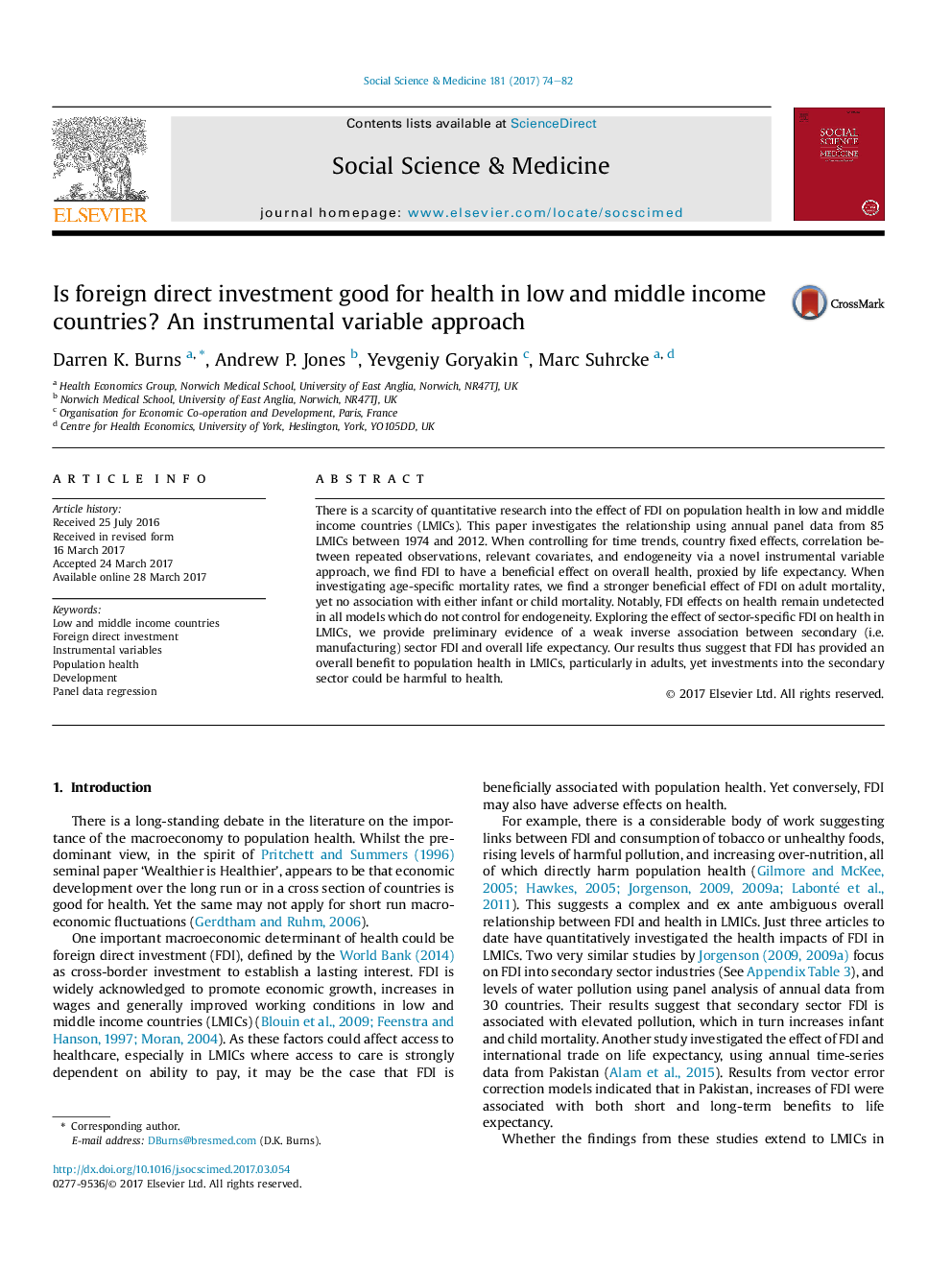| Article ID | Journal | Published Year | Pages | File Type |
|---|---|---|---|---|
| 5046600 | Social Science & Medicine | 2017 | 9 Pages |
â¢Instrumental variable approach utilising determinants of FDI from origin countries.â¢First evidence that FDI generally benefits health in low and middle income countries.â¢The effects of FDI on life expectancy are driven by its effect on adult mortality.â¢Preliminary evidence that secondary sector FDI is harmful to overall health.
There is a scarcity of quantitative research into the effect of FDI on population health in low and middle income countries (LMICs). This paper investigates the relationship using annual panel data from 85 LMICs between 1974 and 2012. When controlling for time trends, country fixed effects, correlation between repeated observations, relevant covariates, and endogeneity via a novel instrumental variable approach, we find FDI to have a beneficial effect on overall health, proxied by life expectancy. When investigating age-specific mortality rates, we find a stronger beneficial effect of FDI on adult mortality, yet no association with either infant or child mortality. Notably, FDI effects on health remain undetected in all models which do not control for endogeneity. Exploring the effect of sector-specific FDI on health in LMICs, we provide preliminary evidence of a weak inverse association between secondary (i.e. manufacturing) sector FDI and overall life expectancy. Our results thus suggest that FDI has provided an overall benefit to population health in LMICs, particularly in adults, yet investments into the secondary sector could be harmful to health.
